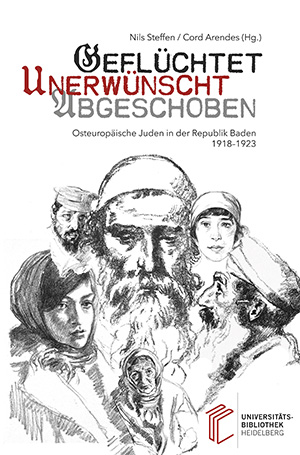Horn, Sebastian
Geflüchtet, unerwünscht, abgeschoben: Osteuropäische Juden in der Republik Baden (1918–1923)
Roughly 10 million people worldwide are fleeing due to World War One. Among them “Ostjuden”, Jews who had to leave their homes in the countries of Eastern Europe, who are fleeing from murderous anti-Semitic pogroms. Their safe haven: America. But the United States close their borders. The routes to America through the German ports of Hamburg and Bremen turn into dead ends for many refugees. Thousands of stranded people try to make Baden their new home.
They arrive in a country which is scarred by war and torn apart by political conflicts. A country that can hardly provide enough food, housing, and work for its own population. They face a nation looking for scapegoats, thinking to find them in the German Jewish communities. The newly arriving Jewish refugees are often undesired.
Students of Heidelberg University researched the life stories of “undesirable foreigners” in local archives and examined the reactions of the German authorities and the public to the refugees. Their research results are published in this book and are accompanied by selected sources from contemporary files, letters, parliamentary debates, and newspaper articles.



